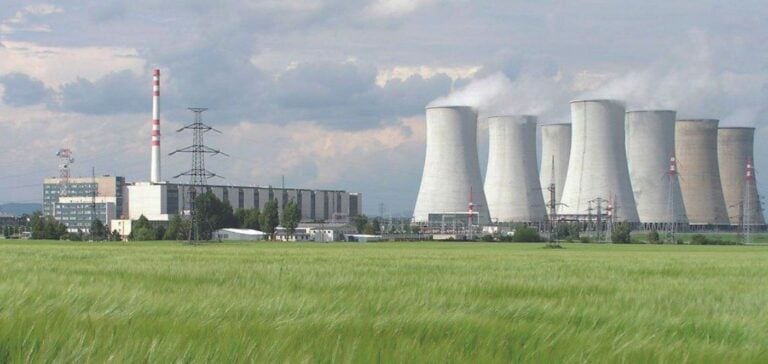Last week, the Slovak government gave the go-ahead for the construction of a new 1.2GWe nuclear reactor near the existing Bohunice plant. This decision, taken before the assassination attempt on Prime Minister Robert Fico, is designed to strengthen the country’s energy capacity and ensure a stable, sustainable source of energy.
Energy context and challenges
Slovakia ‘s Minister of the Economy has been tasked with detailing the plan by the end of October. Slovakia currently has five nuclear reactors, three at Mochovce and two at Bohunice, producing around half the country’s electricity. Another reactor is under construction at Mochovce. The plants are operated by Slovenské Elektrárne, the national operator.
International Cooperation
Slovakia is exploring international partnerships for this project. Foreign Minister Juraj Blanár, on a visit to South Korea, discussed cooperation in the field of nuclear energy with his South Korean counterpart, Cho Tae-yul. South Korea, renowned for its expertise in the planning, construction and operation of nuclear power plants, could become a key partner in this project.
An ambitious, structured project
Jadrová Energetická Spoločnosť Slovenska (JESS), a joint venture between JAVYS (51%) and Czech supplier ČEZ (49%), is responsible for preparing the NJZ (New Nuclear Resource Project) in Bohunice. In February last year, JESS submitted an application for a siting permit to the Slovak Nuclear Regulatory Authority (ÚJD).
Project chronology
According to the approved plan for the period 2022-2025, JESS expects to apply for a construction license for the new plant at the end of 2025, with construction scheduled to start in 2031. JAVYS has signed cooperation agreements with EDF and Westinghouse, broadening the technological options available for the project.
Geopolitical issues
The Minister of Economy, Denisa Sakova, announced that a tender would be launched to select the supplier of the new unit, excluding the participation of Rosatom, the Russian company. This decision reflects current geopolitical dynamics and energy security concerns.
Prospects for Nuclear Energy in Slovakia
The approval of the new reactor in Bohunice marks a crucial step in the evolution of Slovakia’s energy infrastructure. By boosting its nuclear capacity, Slovakia has secured a reliable, low-carbon source of energy. Ongoing discussions with international partners underline the country’s commitment to diversifying its partnerships and integrating cutting-edge technologies. Slovakia’s decision to build a new nuclear reactor at Bohunice is a strategic response to today’s energy challenges. With the support of experienced international partners, this project aims to strengthen the country’s energy security while helping to reduce carbon emissions.





















